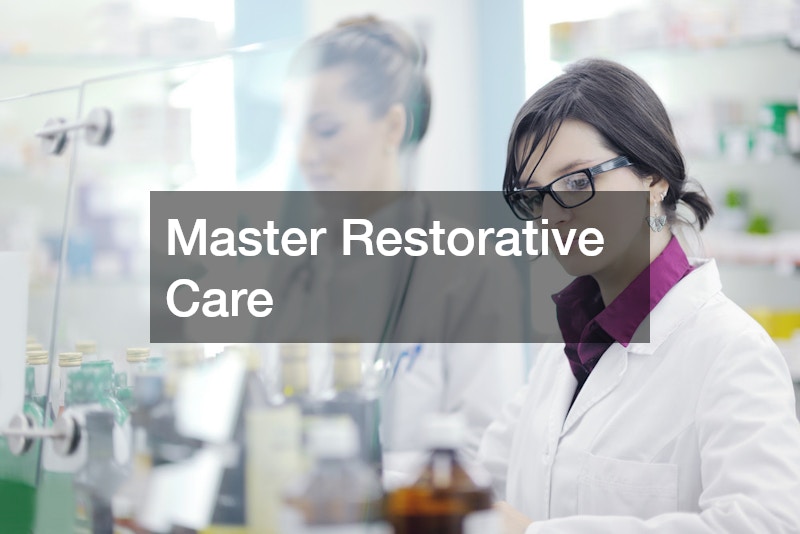The landscape of medicine is ever-evolving, and as we look towards 2025, it’s important to consider the emerging opportunities that exist across various medical career pathways. Medical professionals of the future will not only need to remain competent in their respective fields but will also need to integrate a variety of specialized skill sets to address the growing complexities of healthcare. As new technologies and methodologies are deployed, the healthcare sector is poised for revolutionary changes that promise to enhance diagnostic accuracy, patient care, and treatment outcomes.
In this rapidly shifting environment, aspiring medical practitioners must have an academic success plan that prepares them for the demands of the future. This will ensure they remain competitive and capable of contributing to the advancements in healthcare. Understanding and aligning with these developments will be pivotal in establishing a successful career in medicine by 2025. In this article, we take an in-depth look at ten medical career pathways that are set to grow and transform the medical landscape, offering promising prospects for those ready to embark on these rewarding journeys.
Discover New Diagnostics
One of the most exciting prospects in the medical field is the advent of new diagnostic technologies. With the introduction of sophisticated imaging techniques and equipment, medical professionals are able to diagnose diseases and health conditions with unprecedented precision. This advancement opens a vast array of possibilities, especially in the realms of preventative care and early detection of illnesses. The use of tools like the upright MRI scanner has redefined how certain conditions are diagnosed, offering a more comfortable and efficient experience for patients.
The upright MRI scanner, in particular, is revolutionizing diagnostics by allowing for more natural assessments of bodily functions. Unlike traditional MRI machines, which require patients to lie flat, the upright MRI enables imaging while patients are in a seated or standing position. This innovation is invaluable for diagnosing conditions affected by gravity or posture, such as spinal issues or joint problems. Furthermore, it supports patients who may have claustrophobia or difficulty lying down for traditional MRI scans, offering a solution that is both patient-friendly and effective.
Incorporating expertise in these cutting-edge technologies into medical training is becoming increasingly critical. As part of a well-planned academic success plan, training in the operation and interpretation of imaging from an upright MRI scanner can provide a distinct edge for radiologists and diagnostic technicians aiming to excel in this evolving field. The versatility of this equipment not only enhances the scope of diagnoses but also prepares medical professionals to meet the rising demand for more personalized and precise healthcare solutions. Familiarity with these advancements will inevitably become crucial as the demand for accurate diagnostics continues to rise, ensuring that practitioners remain at the forefront of modern medicine.
Master Restorative Care
The field of restorative care is central to healing and improving quality of life for patients with chronic pain, injuries, or degenerative conditions. This arena includes a wide array of professions, each dedicated to the rehabilitation and well-being of patients through customized care plans. A prominent role within restorative care is that of the chiropractor, whose expertise in spinal adjustments can significantly alleviate pain and improve mobility. As we advance towards 2025, the integrative approach between chiropractic care and other therapeutic modalities will be essential in providing holistic care for patients.
Chiropractors are poised to play a greater role in the management of musculoskeletal health, which aligns well with the trend towards less invasive and more patient-centered treatment options. Aspiring professionals can benefit from an academic success plan that includes a focus on the latest chiropractic techniques and evidence-based practices. By embracing these strategies, chiropractors can help meet the increasing demand for natural alternatives to pain management, an area expected to grow substantially as patient preferences shift towards non-pharmaceutical solutions.
Support Pediatric Growth
Children are the future, and their health and development are critical areas of focus for medical professionals. Pediatric therapy encompasses a broad range of services aimed at helping children achieve optimal developmental milestones, enhance learning abilities, and live healthier lives. This specialty is particularly rewarding as it directly contributes to the building blocks of lifelong wellness. With ongoing advances in research and therapy techniques, pediatric therapists are in a position to make transformative impacts on the lives of young patients.
Pediatric therapy is increasingly integrating innovative methods such as play therapy, behavioral interventions, and family-centered approaches to achieve significant results. Professionals seeking to enter this field should follow a comprehensive academic success plan that includes training in these emerging techniques. The future of pediatric therapy not only involves addressing current developmental challenges but also encompasses preventive measures to avoid potential issues, supporting children in reaching their fullest potential.
Innovate Patient Comfort
Patient comfort stands as a cornerstone of quality healthcare, influencing overall satisfaction and outcomes. In recent years, there has been a significant shift towards enhancing patient comfort, leading to innovations in healthcare services and delivery. The introduction of better auditory aids and services caters to patients with hearing impairments, playing a crucial role in improving their quality of life. Hearing aid clinics have become the embodiment of this shift, offering personalized solutions that align with the latest technological advancements.
The role of a hearing aid clinic goes beyond supplying hearing devices; it encompasses tailored patient education, support, and follow-up care, ensuring each client’s unique needs are met. As part of an effective academic success plan, healthcare professionals interested in this area should prioritize staying abreast of the cutting-edge technologies and techniques that are continuously evolving. By doing so, they can deliver superior care and maintain a competitive edge in this niche yet essential part of medical services.
Pursue Aesthetic Medicine
The demand for aesthetic medicine is surging as individuals increasingly seek cosmetic improvements alongside traditional healthcare. This specialty involves non-surgical and minimally invasive procedures aimed at enhancing appearance, which has gained traction due to societal shifts towards self-care and wellness. Within this field, wrinkle treatment services have gained particular attention as they offer effective solutions for combating signs of aging, enabling individuals to maintain youthful appearances.
Those pursuing careers in aesthetic medicine must cultivate a keen understanding of diverse treatments such as wrinkle treatment services and injectables, leveraging a well-structured academic success plan to build competencies. As this field is continuously evolving with new technologies and patient expectations, it demands a strong foundation in clinical techniques and a commitment to continuous learning. Aesthetic medicine offers remarkable opportunities for practitioners to practice artistry alongside medicine and make a significant impact on patient self-esteem and well-being.
Manage Chronic Illnesses
Chronic illnesses pose some of the most significant challenges in today’s healthcare system, affecting millions globally and requiring long-term management strategies. The role of a primary doctor is critical in this scenario, as they act as the first point of contact, diagnosing conditions and coordinating ongoing care. As we look forward to 2025, the need for skilled, knowledgeable primary doctors is more pressing than ever to address the complexities associated with chronic health conditions.
Primary doctors’ commitment to continuous education and a strategically developed academic success plan will enhance their ability to manage complex cases involving chronic diseases effectively. Given the anticipated increase in chronic illness prevalence due to lifestyle and demographic changes, these professionals will need to emphasize preventive care, patient education, and personalized treatment plans. Embracing advanced technologies and analytical tools will also be vital in offering proactive and efficient patient care tailored to individual health needs.
Excel in Therapeutic Roles
Therapeutic roles within medicine cover a broad spectrum of services imperative to patient rehabilitation and recovery. As medical understanding progresses, these roles are increasingly specialized and effective in addressing various conditions. One such area is vertigo treatment, where specialists employ a range of therapies to relieve related symptoms and restore balance. Professionals skilled in this domain bring immense relief to their patients, playing a critical role in enhancing mobility and quality of life.
By adopting an academic success plan centered on the latest therapeutic techniques, practitioners can excel in areas like vertigo treatment, translating comprehensive knowledge into effective patient solutions. With the projected increase in demand for specialized therapies due to aging populations and lifestyle shifts, public and private healthcare systems are likely to seek out those who demonstrate expertise in delivering targeted, results-oriented care. This provides aspiring professionals with considerable opportunities to make a difference in the lives of their patients.
Champion Preventive Health
Preventive health has gained prominence as more individuals recognize the importance of averting illnesses before they occur. Preventive strategies not only save lives but also reduce healthcare costs significantly. Dentists, for example, play an indispensable role in preventing oral diseases, which evidence suggests may have implications for systemic health. This reinforces the essential nature of preventive care in ensuring holistic wellness.
The practice of preventive dental care involves early screenings, regular cleanings, and educating patients on maintaining oral hygiene. By following a tailored academic success plan, dentists can harness the latest research, tools, and techniques, thereby offering services that extend beyond conventional treatment. As the push for preventive healthcare continues to grow, dental professionals are well-positioned to lead by example, advocating for a shift towards proactive, rather than reactive, health practices.
Redefine Dental Services
Dental services are rapidly evolving as new treatments and technologies emerge, providing more options for patients seeking oral health care. Within this domain, plastic surgeons are playing an increasingly crucial role by offering reconstructive and cosmetic dental procedures. This cross-specialization helps meet the rising demand for comprehensive care that encompasses both aesthetic and functional considerations.
The integration of plastic surgery methods into dental services signifies a transformative development, allowing practitioners to deliver superior and holistic care. With advancements in dental materials, surgical techniques, and patient care protocols, plastic surgeons in dental fields can address complex structural challenges that traditional methods may not manage effectively. An academic success plan for dental professionals should thus incorporate training in interdisciplinary approaches, ensuring they remain adept at meeting the expanding needs of their patients.
Advance Medical Imaging
Medical imaging has long been the bedrock upon which many diagnoses depend, offering critical insights into the human body and its complexities. Technologies such as the upright MRI scanner are part of a broader move towards precision imaging, which provides clearer, more comprehensive perspectives of physiological conditions. Beyond its diagnostic roles, advanced imaging is being harnessed for therapeutic interventions as well, such as those required for sleep apnea management.
Sleep apnea specialists, among others, rely on cutting-edge imaging technology to diagnose and monitor this complex sleep disorder. Medical professionals in this area should develop an academic success plan that prioritizes education in the latest imaging technologies and their applications. By doing so, they will be better equipped to participate in the innovative treatment strategies that are shaping future pathways for addressing conditions such as sleep apnea with greater efficacy and patient comfort.
The medical sector is on the brink of transformative changes with new technologies, techniques, and interdisciplinary approaches shaping various career pathways. As we near 2025, prospective healthcare professionals must cultivate an academic success plan that aligns with these trends to ensure they are well-prepared for the future. Through leveraging emerging technologies like the upright MRI scanner and fostering expertise in fields ranging from vertigo treatment to pediatric therapy, the next generation of medical professionals can contribute significantly to evolving patient care standards.
This article underscores the importance of adaptability and continuous learning in pursuing these promising career pathways. Each area, be it chronic illness management with primary doctors or innovations in hearing aid clinics, presents unique opportunities to advance healthcare delivery. Ultimately, by embracing these diverse career possibilities, medical professionals can create meaningful impacts on both individual patient outcomes and broader healthcare systems. As we anticipate these future trends, ensuring robust educational planning remains key to thriving in this dynamic and rewarding industry.




